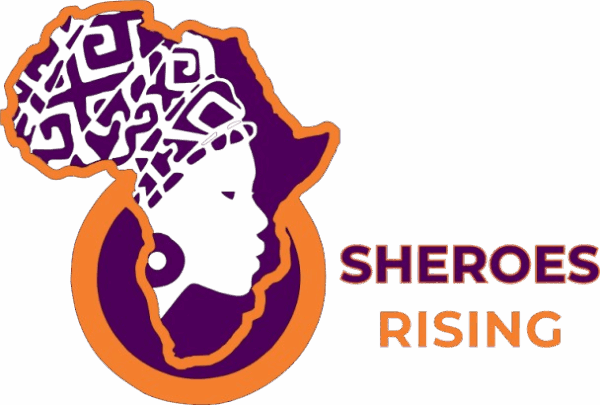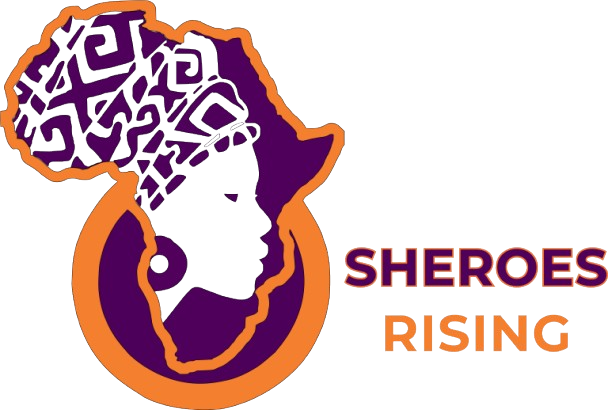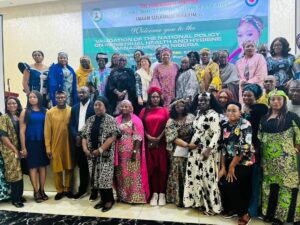Studies have shown that peace agreements reached with the active participation of women have a better chance of being sustainable and effective than those without. Societies that put an emphasis on reaching gender equality also enjoy better health, stronger economic growth and higher security.
What is peace? How peaceful is our world today? Do we even understand what peace is? How can we have peace when we do not know what it is?
Peace is not just the absence of war; it is the presence of justice, equality, safety, dignity and mutual respect for all.
September 21st of every year, the world marks ‘International Day of Peace‘, a moment dedicated to strengthening the ideals of peace, both within and among nations and peoples. Established by the United Nations in 1981, this day is not merely symbolic; it is a global call to action for unity, cooperation, and the rejection of violence as a means of resolving conflict. In today’s world, where conflicts in Ukraine, Gaza, Sudan, and the Democratic Republic of Congo dominate headlines, Peace Day reminds us that dialogue, compassion, and human rights must remain at the heart of global priorities.
Women & Children in Peace: Protecting the Future
Women and Children remain the most vulnerable victims of war. From bombed schools in Ukraine to displaced families in Sudan, young lives are disrupted daily. On International Day of Peace 2025, schools and NGOs across the world organize peace assemblies, art contests, and tree-planting drives to empower children as future peacebuilders.
- In refugee camps, children paint murals of harmony and hope.
- Global campaigns emphasize education in conflict zones as a key driver of long-term peace.
Women and Girls: Leaders in Peacebuilding
What exactly is the role of omen in peace-building? Why are women important in peace-building conversations?
Women play a critical role in preventing conflict, building peace and helping communities recover during crises, often putting their own lives at risk. Despite this, women largely remain at the periphery of formal peace processes and decision-making.
Women have historically played significant roles in peace building efforts in Africa, often at the grassroots level, where they have demonstrated the ability to bring communities together, promote dialogue, and address the root causes of conflicts. Their unique perspectives and experiences offer valuable insights into conflict prevention and resolution.
According to the African Union, several African and global policies and frameworks highlights the vital link between women’s empowerment and peace and security by advocating for their increased participation in conflict prevention, resolution, and post-conflict reconstruction. Nevertheless, women continue to represent only a minority among peace negotiators, envoys, mediators, and peacekeepers.
Despite the progress made in establishing implementation frameworks, significant gaps persist between the envisioned provisions and the present circumstances.
However, empowering women and girls remains one of the surest ways to break cycles of violence and promote lasting peace, but only if the world listens to their voices and acts on their leadership.
- ASEAN’s Women, Peace and Security Summit (2025) reaffirmed the role of women in preventing conflicts and promoting inclusion, urging governments to integrate women leaders directly into peace negotiations.
- In Afghanistan, the youth‑led Peace Activists Afghanistan (PAA) movement creates peace parks, supports education for working children, and fosters community dialogue, even in the midst of crisis, proving the strength of women‑driven leadership.
International Peace Day 2025 is celebrated with active global participation in:
- The UN Peace Bell is rung in New York as a symbol of hope.
- Bangladesh, youth engage in “activism”, using graffiti and murals to promote inclusion and tolerance.
- Pakistan has been one of the largest contributors to UN peacekeeping missions for decades. Since 1960, Pakistani forces have served in many UN missions across different continents.
- Nepal, Gen Z protests in 2025 demanded transparency and reform through peaceful mobilization, reshaping national leadership.
- Nigeria, peace is fostered through football tournaments in Jos and Kaduna, UNDP’s Sport for Peace in Adamawa, and Peace Walks in Benue, empowering women, girls, and divided communities to rebuild trust.
- India’s Bastar region, the Poona Margham initiative helped more than 1,400 former insurgents surrender arms and reintegrate into society with vocational training.
However, even as peace is celebrated, the tragedies of ongoing global conflicts cannot be ignored:
- Gaza: Families face blockade, hunger, and daily bombardment.
- Ukraine: Cities lie in ruins, and millions remain displaced.
- Sudan: Violence and famine uproot communities.
- Congo: Rebel advances deepen humanitarian crises.
These conflicts make Peace Day more than symbolic; it is urgent.
The Benefits and Importance of Peace
Peace forms the bedrock of sustainable development. Without it, no nation can truly thrive. In societies where peace prevails, people enjoy security, economic stability, and access to opportunities. Children can attend school without fear, businesses can flourish, and communities can build trust across ethnic, religious, and political divides. Moreover, peace reduces poverty by allowing resources to be channeled into infrastructure, health, and education rather than into weapons or conflict management. On a personal level, peace nurtures harmony, tolerance, and dignity, giving people the freedom to live fulfilling lives.
From Liberia and Timor-Leste’s reconciliation efforts to The Gambia’s grassroots peacebuilding, history shows that peace is possible. In Afghanistan, Bangladesh, Pakistan, and Nigeria, youth and women prove daily that hope and courage can challenge even the darkest moments.
International Peace Day 2025 highlights children, women, and communities leading peace efforts worldwide. From Pakistan and Nigeria’s grassroots acts to global UN peacekeeping missions, the world proves peace is possible if we choose it together.
Today is a powerful reminder that peace is both a right and a responsibility for all humanity; therefore the time for women to get on the peace building table is long overdue.
Across the globe, societies are confronted with challenges ranging from poverty and inequality to conflict and displacement. Peace offers a pathway to stability, justice, and shared prosperity.
Achieving it requires deliberate effort through dialogue, respect for human rights, social justice, and collective action from individuals, communities, and governments alike.
Peace is not an abstract ideal; it is a daily practice that begins with small choices in our homes, schools, workplaces, and nations. If embraced consistently, it can transform divisions into unity and despair into hope, making the world a safer and more compassionate place for generations to come.
Umm E Habiba Fatima Ikram Abubakar
Punjab, Abuja,
Pakistan. Nigeria.









